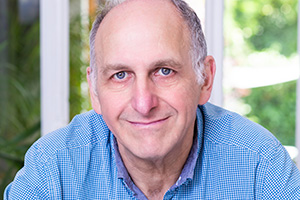What is a joke? - Part 2
In his last article, Dave Cohen explained the mechanics of joke writing, and why not all jokes work. Ahead of the Big Comedy Conference on Saturday 29th November, here he attempts a list to encompass every single type of joke you've ever come across.
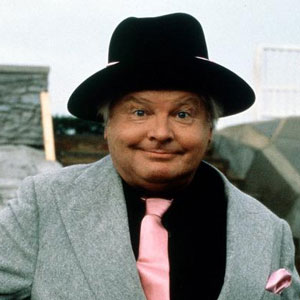
I mentioned in the last article that there's hardly any information available in answer to the question 'what is a joke?' There appears to be even less information defining different types of joke. I remember as a kid being aware of the accepted wisdom that 'there are only seven jokes', which was probably said as a joke, but anyone old enough to remember The Benny Hill Show and Seaside Special may have been forgiven for thinking that figure was an overestimate.
As I started to prepare notes and material about jokes for this year's conference, I came up with six broad types, one less than above, but then I'm sure whoever said there were seven jokes only did so because at the time seven was a funny number. (For a while the comedy number was seventeen, but that's been over-used, although forty-two remains a staple since Spike Milligan introduced it in the novel Puckoon. Why are some numbers funnier than others? I don't know, I'm a joke writer not a psychologist.)
This list, in no special order, is what I have come up with. Some very clever person with spare time and the urge to write a PhD could produce a more detailed collection; you may have your own ideas to add. And some of the categories are bound to overlap. Consider this as the opening conversation, the first attempts to answer the question 'what kind of joke am I?'
It turns reality on its head
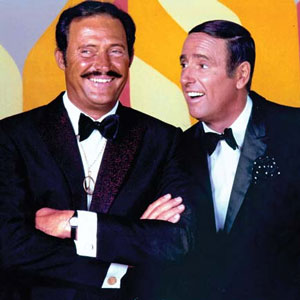
George Orwell described every joke as "a tiny revolution", and it is this, which can also be described as 'surprise', that is one of the most effective ways in which jokes work. Without wishing to be too dry about it, this joke sets you up to think something will happen, but then the unexpected occurs.
Also included here is the reversal gag - the first of its kind was said to be from Rowan And Martin's Laugh-In, when a comedy Eastern European character said "I love America, here everybody watches television. In my country television watches you." Not bad for 1967.
And I should also mention here what's known by a tiny group of English comedy writers as a 'Langdon', named after its originator John Langdon, a prolific gag writer best known for his work with Rory Bremner. Langdon was the first to take pertinent facts about someone in the set up, and make the jokes about the other person or thing. A current one might be "The Prime Minister praised the programmers behind the P67 Comet. Distant, landing on shaky ground and completely cut off from human life for the last four years, Mr Cameron..." etc. That kind of joke, only funnier.
Recognition
This is perhaps the mirror image of turning reality on its head. It gives you the reality you always knew, but it took a comedy writer to point out to you. The best impressionists capture recognisable traits in famous voices and with only the smallest exaggeration can make them funny. The ubiquitous, clunking set up favoured by the unskilled comedy writer "Have you ever noticed..." is usually the set up to a gag of recognition.
"Strained tension into nothing"
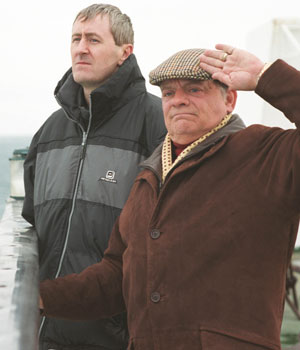
Thanks to Robin Flavell for pointing this one out to me; a quotation from the 18th century German philosopher Immanuel Kant, not a funny man himself although his surname never fails to raise a childish chuckle. The Latin word that best describes these jokes is 'bathos', which means anti-climactic. It's the kind of line that may follow the unwarranted boasts of a pompous fool. You might call that schadenfreude - enjoying someone getting their comeuppance.
Bathos of course is not to be confused with 'pathos', which means deserving of our sympathy - but I think pathos is also relevant here. I love the word 'strained' in that quote. This definition for me brings to mind those moments after great pathos in sitcoms like Frasier and Only Fools, so that when the next big laugh comes it's greeted with an explosion of relief.
Also many lead characters in sitcom can be described with the cliché of "larger than life", or as a 'monster'. These are characters with no self-awareness, and we talk of pricking their pomposity, in the way you might pop a balloon. Kant's definition is apt here.
Finally I'd include in here jokes that make fun of tragedy. In the days before Twitter, it was often incredibly shocking to hear jokes about famous people within hours of them dying. These days the best (and sickest) jokes will have been written, stolen and retweeted before half the population even knew the person had died. Humour in the face of immediate tragedy is a coping mechanism, a way of dealing with the outpouring of grief we feel when someone we love dies. Or the twisted outpourings of an evil comic mind if you prefer.
Unpredictable
This is closely related to the first category I desribed, but rather than turn reality on its head, it takes reality in a new direction. The obvious word to use to describe these jokes would be 'surreal' but be careful - starting a joke about a bicycle and making the punchline a fish rarely works unless there is some very un-surreal foundation to it. The outlandish comedy of Vic & Bob and The Mighty Boosh succeeds because it is rooted firmly in their extremely familiar comedy relationships.
I'd also include silly jokes in here: jokes that usually involve some kind of word play, punnery, knock-knock jokes, innuendo - anything that subverts our language.
Satire

Often taken these days to mean "jokes about what's in the news", satire is one of our oldest joke forms and its strict definition is an attack, usually in verse, on authority and power. Nowadays it's best described as a chance to let off steam, proof that in our democracy it's possible to mock the strong and powerful and not be killed, as still happens in some parts of the world. By the way, I've been writing topical comedy for more than 30 years and I'm afraid I can conclusively reveal that no joke has ever brought down a government.
Cruelty
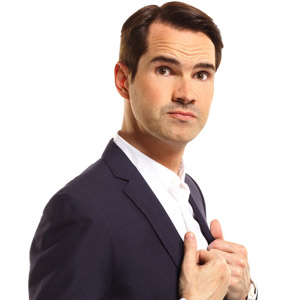
This is a word that encompasses a large collection of types of joke which I don't really need to define, do I? We're talking about mocking people's flaws and weaknesses, attacking people who are already weak, poking fun, bullying, all kinds of things that we are far too cultured and urbane to attempt. You probably think you know exactly what I'm talking about, but you might be wrong.
Of course there's plenty of room in this category for the racist anger of those who still carry Bernard Manning's torch (and wear his hood), and the cruelty of Jimmy Carr towards travellers and the disabled. Jokes attacking women are back in the mainstream - though people who think they are being edgy doing rape jokes need to be reminded that in the 1970s, those were the kind of gags you could find in BBC1 family sitcoms.
But cruelty in humour goes way beyond this. We all like cruel humour, more than we might be prepared to admit. What's so funny about someone falling over in the street? It's probably happened to you and it might have been really painful. I knew a man, a friend of my parents, who died after falling over in the street. And go on, admit it, you're suppressing the urge to laugh even though I've just written a sentence about someone dying after falling over in the street.
I can't think of anyone I know who doesn't love Laurel and Hardy, or Morecambe and Wise. We love them partly because there's so much warmth and a genuinely innocent love between the men in each pairing. That may be the case, but we're also laughing at the fat man falling on his backside, the skinny weed crying like a baby at the slightest problem, the man in glasses slapping his best friend on the cheeks, quite hard, while mocking his toupee and his short fat hairy legs. Schadenfreude again. Which reminds me of another (sort of) type of joke: repetition.
And that's as far as I've got. There are other things to consider when writing jokes - the status and position of the person telling them, the use of rhythm and word play as mentioned, taking imaginative and tangential leaps. But I think these are issues around the joke. Come and find me on the 29th and tell me if you have any more suggestions.
There'll be plenty of advice on Saturday 29th November, from some of the biggest names in comedy writing - how to write sitcom, how to write for radio, how to do topical comedy - but however much time you have to develop your projects, every day, make sure you spend a little portion of it WRITING JOKES.
Have I missed any joke forms? Might there be seven after all? Any suggestions for additional types please do join in the forum discussion.
This article is provided for free as part of BCG Pro.
Subscribe now for exclusive features, insight, learning materials, opportunities and other services for comedy creators.

